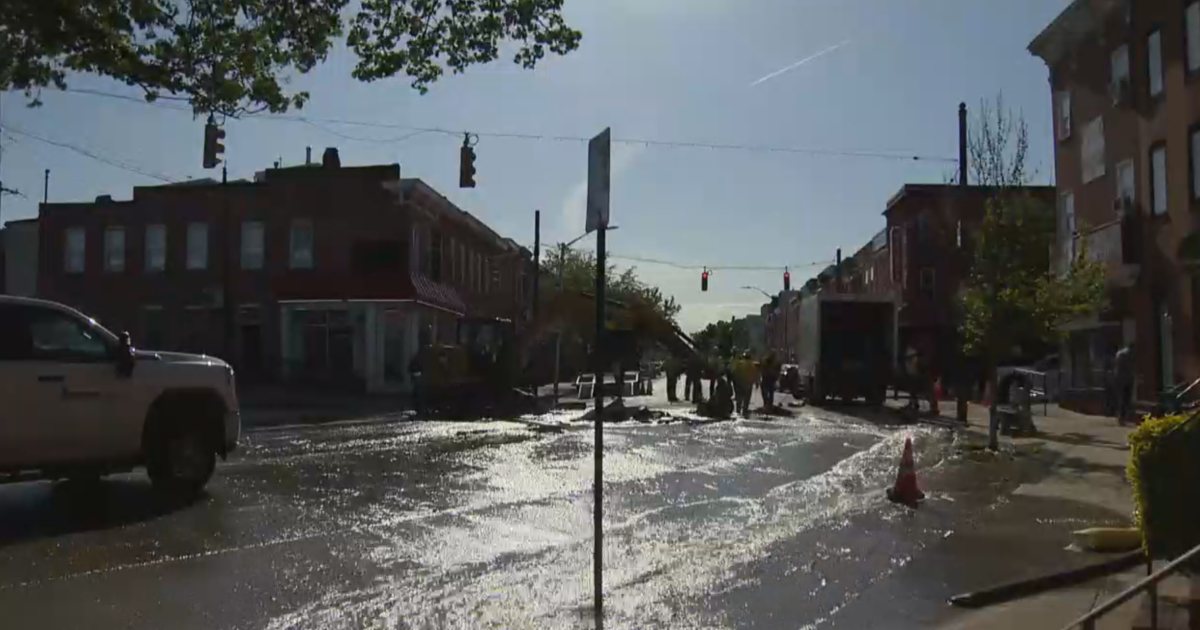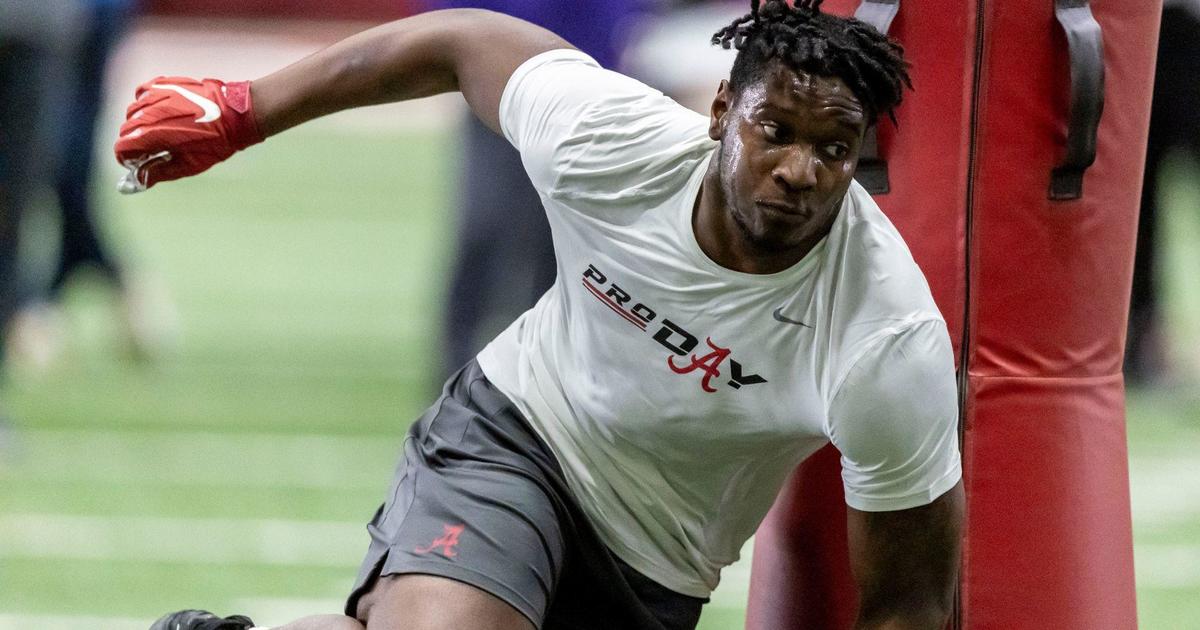How One Couple Fell In love -- While Living In DC Shelters
WASHINGTON (AP) -- When Lorraine met Freddie, they were eating at Popeyes.
She caught his eye. He offered her some of his chicken. And you know how the story goes from there.
They learned that they had similar tastes in television and music; that they were born 10 years apart, almost to the day; that they had the same zodiac sign, which mattered to Lorraine. First they hung out, then they dated, then they met each other's families.
Then Lorraine, now 46, decided she wanted to spend the rest of her life with Freddie, now 56. She wanted them to live together.
But Freddie lived on the street.
So soon, Lorraine did too.
Theirs is a story of homelessness -- of the degradation and exhaustion of an existence on the margins, of the physical and psychic dangers of life without shelter, of the ravages of drug and alcohol abuse.
It is also a love story.
Lorraine and Freddie Johnson -- who have been a couple for 15 years, married for three and housed for five -- are among the subjects of a documentary called "Homelessly in Love" in production in the District.
All of the subjects are homeless or formerly homeless. But this documentary doesn't ask the subjects to talk about their poverty.
It asks them to talk about their love lives.
"When you see a documentary about homelessness and hunger, you don't think, `Oh, these guys are just like me.' When you see someone getting his heart broken, you do," said Ariane Mohseni, one of the two creators of the project.
Mohseni, a Parisian business school student, hit on the idea while volunteering in a homeless shelter. She discussed it with her high school friend Lalita Clozel, now a journalist in the District. When Mohseni took a break between banking internships, she decided to travel to the United States to make the film with Clozel.
Street Sense, the organization behind the newspaper sold by homeless people in the District, provided the women with the camera equipment they needed and introduced them to people in the homelessness-focused community in Washington. Soon, they were in touch with numerous couples.
The women, both 23, have not made a documentary before. They expect their film will be no more than 30 minutes long, and they plan to make it available free on YouTube.
They frequently interrupt their interviews to converse in French about whether they're using their equipment properly. And they're taking tips from people they meet -- such as Eric Sheptock, an advocate for the homeless, whom they interviewed.
"In the film, he's our expert. You know how you're supposed to have experts in documentaries? Someone told us that," Clozel said.
But despite their inexperience, they know what sort of story they want to tell. "It's so easy to see (homeless people) as alien," Mohseni said. They want to fight that.
They also say they don't want to shy away from discussing bad relationships as well as good ones -- including abusive relationships that many homeless women find themselves in because they are simply looking for a partner for protection.
"We do want to show the reality," Clozel said. "We're not trying to show only lovey-dovey, cutesy stuff."
One of the main storylines of their documentary focuses on a young couple, both 20 years old, trying to raise their two children in the District's overburdened family shelter system. Another main character is a middle-aged woman who has been in abusive relationships before but still smiles and covers her face with girlish eagerness, in the filmmakers' early footage, when she talks about the latest man in her life.
Clozel and Mohseni plan to wrap up filming this month and release the movie by the end of August.
Last week, they shot an interview with Lorraine and Freddie.
The couple, welcoming the documentarians into the subsidized apartment where they now live in the Greenway neighborhood in Southeast, started out with the story of that day at Popeyes.
"He looked like Wolfman Jack. But I looked at his chicken, and I said, `Well ...'?" Lorraine recalls with a grin. At the time, the chicken really was tempting. Lorraine had recently been released from jail after serving time for drug-related crimes, and the lasagna on offer that day at the women's shelter where she was staying was overcooked.
Freddie, at the time, was staying in a men's shelter. They could find no place for the two of them to stay in a shelter together.
When Lorraine left her shelter so that they could live on the streets together, for about two and a half years, both were crippled by health problems: Lorraine by her addiction to crack, which she finally broke in 2007; Freddie by a seizure disorder.
Every day was a struggle. One would sit at the corner of 14th and P streets NW to watch their grocery cart of possessions, which Freddie called their "chariot," while the other went to a day shelter for a shower and food.
Freddie sometimes found work on demolition sites. Lorraine did not have a job; she said she receives disability payments because of a head injury she suffered several years ago.
Finding water, shade from the sun or even a bathroom was hard. So was finding private time together.
"Intimacy?" Lorraine asks when Clozel questions her, on camera, about that aspect of their relationship during their homeless time. "That was hard."
"We would have to make arrangements for that," Freddie told the filmmakers. "We got friends. We either go to their house and perform some magic, or get some money and go to a motel room sometimes. I shop around, and I go to the cheapest place I know. They might call it a flophouse."
Freddie is black and Lorraine is white, and he said he was relieved that neither of their families had any race-based objections to their relationship. Their families often didn't know the extent of their difficulties, however.
"His sister would say, `Lorraine, as long as you love each other, you can sleep in a cardboard box,'?" Lorraine recalled wryly. "I would say, `Huh, we probably already did that.'?"
They slept most nights under the arch of a church. Nights of raucous celebration in the District were terrifying for them -- one Mardi Gras, drunken revelers attacked them both; on the night that President Obama was first elected, an intoxicated man stabbed Freddie in the arm, they said.
When Lorraine managed to get sober, and then when they obtained a housing subsidy for their own apartment, they thought their fortune had -- at last -- improved.
"We sit down at the table and bless our food 'stead of being in a hurry," Lorraine said. They now have air conditioning, a telephone with Post-it notes over it to remind them of their doctors' appointments, social workers and a nurse upon whom they heap praises and a television for watching Freddie's beloved Westerns and Lorraine's "I Love Lucy," which she says helps her see if she's doing married life properly.
But soon after they obtained housing, Freddie was injured falling out of a Metro bus. He did not receive compensation from Metro, he said, because he was drunk at the time.
He suffered a brain injury that wiped out some of his memory and paralyzed the left side of his body.
Using a wheelchair, he was unable to perform the demolition work that had provided some income for them before. At first, he was scarcely able to move.
Lorraine, visiting him frequently at the rehabilitation hospital where he recuperated, decided they should be married. And that their wedding date should be his birthday, so that despite his weakened memory, he would always remember both.
"Who proposed and how?" Mohseni asked as Lorraine flipped through their wedding album for the camera. "That would be me," she replied.
"We locked it down," Freddie said. "Locked each other down."
He turned away from the camera and toward his wife, perched next to him in the pair of armchairs he calls their "thrones," where they reign over the couple rooms of shelter they are so grateful to call their own.
And Freddie said to Lorraine, "Believe me. Trust and believe. You always have my love."
(Copyright 2015 by The Associated Press. All Rights Reserved.)



